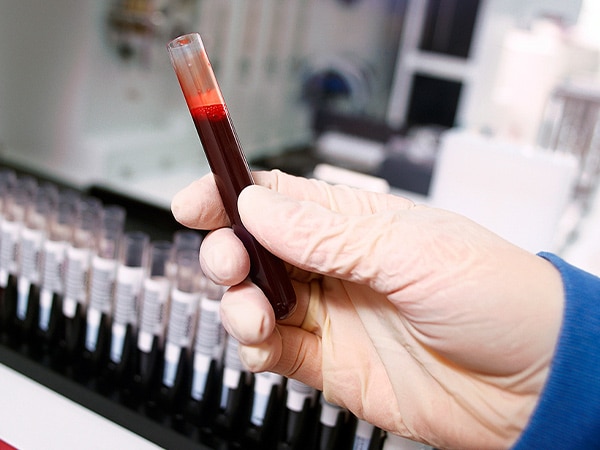Predicting Responses to a Targeted Therapy
A new study found that a decrease in a specific population of circulating tumor cells over the first two months of crizotinib treatment was associated with increased progression-free survival.

A recent study showed that a decrease in a specific population of circulating tumor cells in the blood of lung cancer patients undergoing treatment with the molecularly targeted therapeutic crizotinib (Xalkori), was associated with positive outcomes.
The approval of the ALK-targeted therapeutic crizotinib has improved outcomes for the approximately 4 percent of patients with non-small cell lung cancer that is driven by genetic aberrations called ALK gene rearrangements, according to Françoise Farace, PhD, the lead author of a study published in Cancer Research, a journal of the American Association for Cancer Research.
“But the duration of responses varies widely, from a few months to several years,” added Dr. Farace, who is leader of the circulating cells team at Gustave Roussy, INSERM, Université Paris-Saclay, Villejuif, France.
“In this study, we showed that analysis of ALK copy number in circulating tumor cells before starting crizotinib treatment and after two months of crizotinib treatment may provide a biomarker for predicting the effectiveness of the therapeutic,” said Dr. Farace. “This is important because there is currently no means of distinguishing those patients likely to gain long-term benefit from crizotinib from those who are not and who should consider trying some of the newer ALK-targeted therapeutics that have been more recently developed.”
During the study, Dr. Farace and her colleagues analyzed blood samples taken from patients with ALK-rearranged non-small cell lung cancer before they starting taking crizotinib and after about two months of treatment.
They first enriched for circulating tumor cells in the samples and then measured how many circulating tumor cells in each sample had an increased number of copies of the ALK gene.

This analysis showed that a decrease in the number of circulating tumor cells with increased copies of the ALK gene over the first two months of treatment was associated with increased progression-free survival. Median progression-free survival for the 13 patients who had a decrease in the number of circulating tumor cells with ALK copy number gain was 14.0 months, while the median progression-free survival for the 16 patients who had stable or increased numbers of circulating tumor cells with ALK copy number gain was 6.1 months.
“Although this is a proof-of-concept study that needs validating in larger studies at different sites before it can be used in the clinic, the results reflect the potential of liquid biopsies to monitor treatment response in real time and tailor treatments at the individual patient level,” said Dr. Farace.
According to Dr. Farace, the main limitation of the study is that circulating tumor cells are very rare and the identification of ALK copy number gain in these cells is complex and requires a very specific know-how and high technical expertise. Thus, large-scale application of the assay will require technological advances, she said.
Funds from the Fondation de France, the Fondation ARC pour la Recherche sur le Cancer, Innovative Medicines Initiative 11th Call CANCER ID, Institut National du Cancer, and Agence Nationale de la Recherche supported this study.
